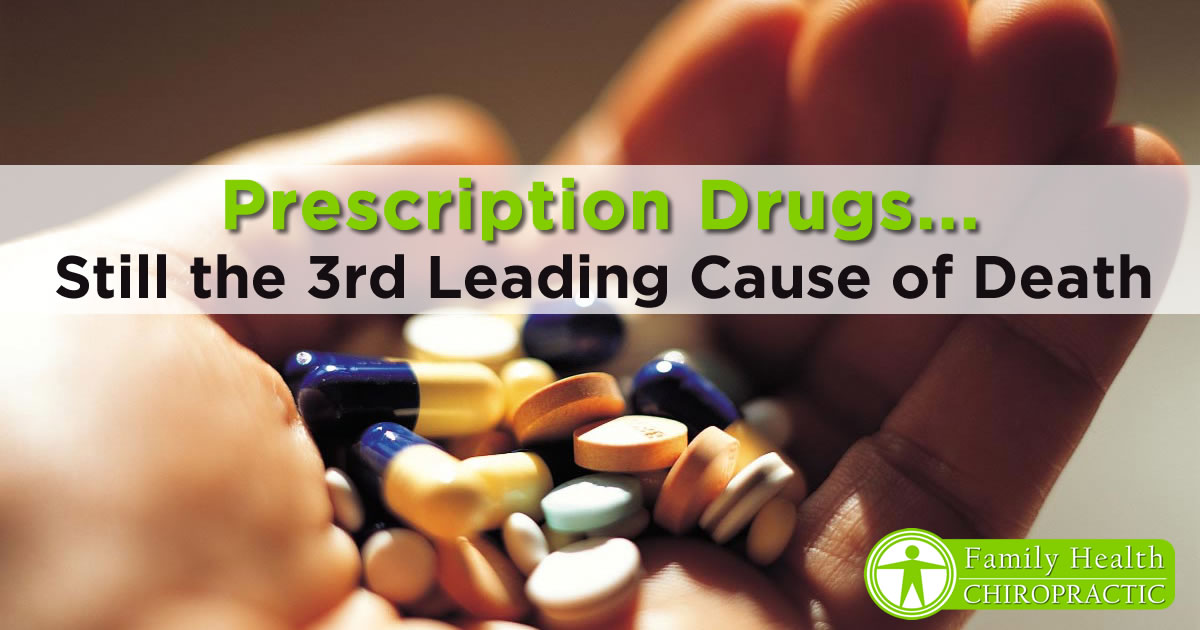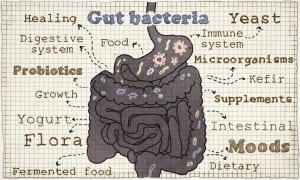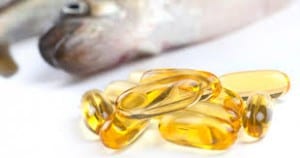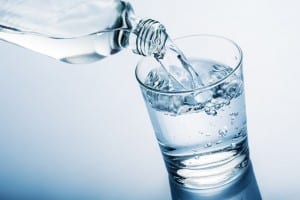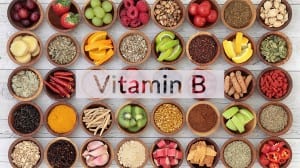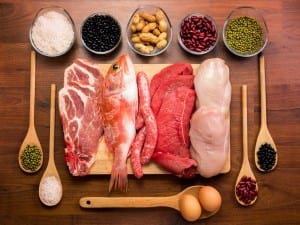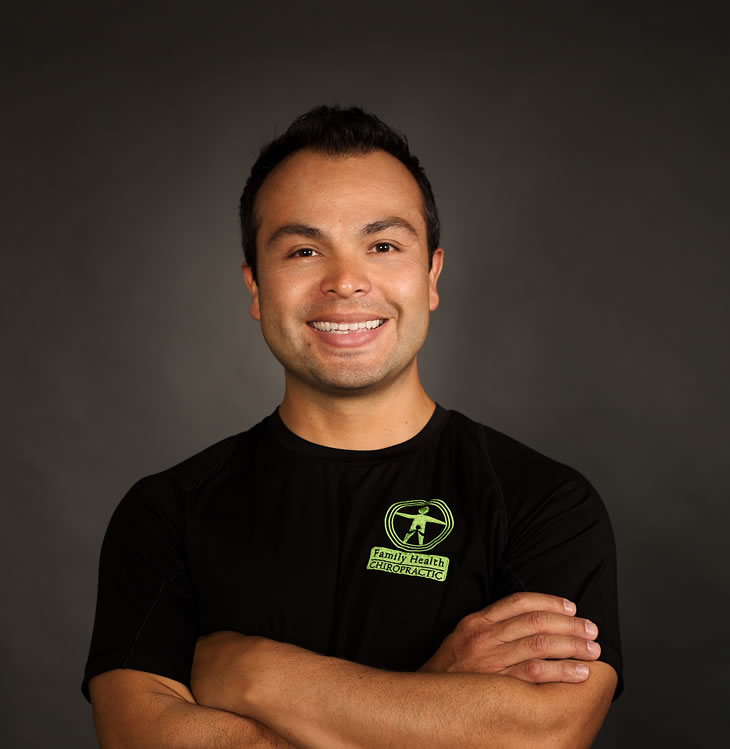You're sick.
You've got pain, ailments or some disease process that has finally spiraled out of control to the point where you're desperate to do anything to solve it.
Maybe you're not a “prescription person”. Maybe you're not someone who “takes medications”.
But you go to the doctor and what kind of solution will they have for you?
Prescription Drugs are the 3rd Leading Cause of Death
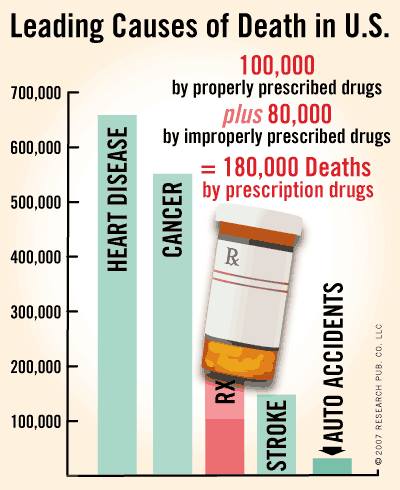
Based on the best research available, Its estimated that psychiatric drugs alone are the third major killer, mainly because antidepressants kill so many elderly via falls (2).
This tells us that the system we have for researching, approving, marketing, and using drugs is totally broken and utterly retarded.
What makes this even more ridiculous is that the vast majority of the deaths can easily be prevented.
Non-steroidal, anti-inflammatory drugs (NSAIDs) carry a huge death toll, primarily by causing bleeding stomach ulcers and myocardial infarction (Heart Attack), and most of those who die could have done well without consuming them.
Antidepressant drugs are another major killer that people could do well without.
Their effect on depression is questionable. The standard outcomes are highly subjective, e.g. a score on a depression scale, and it is therefore important that the trials are adequately blinded, but they aren’t.
Most patients and doctors can guess whether the drug is active or placebo because of the drugs’ conspicuous and common side effects, and if atropine is added to the placebo to blind the trials better, the effect disappears.
Then there are many other drugs that likely have no true effect or clinical outcome, e.g. anticholinergic drugs for urinary incontinence and anti-dementia drugs or Prilosec so you can continue eating hotdogs, charred beef or macoroni with ultimate comfort… well these also have cerebral side effects and can kill you.
Most of the deaths are invisible. Because people get heart attacks and hip fractures without them.
Yet the question remains… how many more unnecessary deaths are occurring every day from taking these medications?
There are simple solutions to our deadly drug epidemic.
Make fewer diagnoses, prescribe fewer drugs and tell the patients to read the package insert on the internet.
Seriously… read the Naproxen label Warnings section here. It lists so many different ways this drug could kill me that I've decided never to take an NSAID.
A Life Without Drugs is Possible
You know those people, the ones who are older than you but act decades younger?
They embody the phrase “70 is the new 50.”
Actually, in their cases, 70 seems to be the new 30 because they radiate so much youth and energy.
These folks may have A+ genetics, which undeniably contributes to their health, but eating nutritious foods, managing stress and making smart lifestyle choices have also been proven to slow the aging process and stave off disease.
Graceful aging isn’t about avoiding wrinkles and gray hair; the ultimate goal is to maintain brain alertness, preserve energy levels and prevent disease.
The brain remains alert when it is elastic and rested; energy levels stay high when we balance blood sugar and hormones and maintain muscle mass; and we prevent disease when we preserve gut and immune health.
Let’s dig into how to make these things happen so we all feel we are “the new 30.”
Optimize Gut Health to Boost Immunity
80 percent of the immune system lies beneath the gut lining, so it is important to protect your gut and prevent anything from potentially destroying it (ie prescription drugs and other dangerous chemicals).
Consume foods full of collagen, protein and minerals and also make sure you increase the intake of fermented foods.
Omega-3 Fatty Acids may be the Best Brain Food
These fats have been shown to support brain function, reduce inflammation, build and repair cell membranes, and aid with stress management, while also protecting against cardiovascular issues and diabetes.
So don’t skimp on omega-3s found in wild salmon, sardines, mackerel and fish oil supplements.
Water is Essential for Life (whether you like it or not)
Every one of our cells requires water to survive and replicate. Dehydration can cause fatigue, foggy thinking, headaches and constipation, all signs of aging. (Or perhaps simply signs of dehydration?)
A hydrated brain is a healthier brain, and as we get older it becomes more difficult to absorb nutrients in the gut, and a hydrated gut is a healthier gut, too.
B Vitamins are Essential for Cognitive Function
Did you know that stomach acidity declines with age? This means that most of you over the age of 40 will begin to experience nutrient deficiencies and not replacing these nutrients will begin to cause all sorts of problems. B vitamins are a big one!
B vitamins are often poorly absorbed to begin with. In addition, many medications such as acid-blocking drugs for heartburn can block a body’s ability to absorb B vitamins, as can stress.
Eat plenty of B vitamins from foods such as eggs, beans, nuts, seeds, green vegetables, fish and whole grains.
Protein is Essential for Tissue Repair and Function
Do you eat less or more as you age? By the time we hit 50, the average adult has lost 15 percent of lean body mass, and the loss continues with advanced age.
The lower the muscle mass, the higher the fat mass, which can fuel other chronic conditions such as diabetes and heart disease.
A significant loss of muscle also increases the probability of a fall.
Adequate protein throughout the day — from beans, nuts, seeds, wild fish, chicken and avocado — is key as the body ages. Weight-bearing exercise and yoga support muscle strength and flexibility.
Optimize Vitamin D Levels
As we age, we are more at risk for vitamin D deficiency because we may spend less time in the sun and also have less capacity to synthesize vitamin D through the skin.
As it currently stands, more than 90% of people that I personally test for Vitamin D are found to be deficient.
Vitamin D boosts the immune system, prevents cancer and supports bone and heart health. It also helps to absorb other nutrients such as calcium, iron, magnesium and zinc. Studies show that only 10 to 15 percent of the calcium in food is absorbed without vitamin D.
Learn to Balance Out Hormones
The low fat craze of the 80's brought us all sorts of hormone imbalance problems.
Healthy fats build healthy hormones, while too much sugar, too little sleep and many of the chemicals in our environment contribute to imbalanced hormones, which contribute to the aging process.
Eating healthy fats such as salmon and avocados helps with hormone health.
It's also important to realize that negative thoughts and attitudes release stress hormones, which undermine hormone and neurotransmitter health, while positive thoughts boost happy hormones and positive health.
The placebo effect is one example of how the power of hopeful, positive thoughts can have a positive medical impact.
Without question, I want loads of happy hormones flooding my body.
I also want a sharp brain, an active body, and to do everything I can to avoid the development of disease or having to take any sort of prescription medication.
Do I have A+ genes that will allow me to look as young as I'd like to look for the rest of my life? I Don't think so.
But who cares?
I’m counting on the salmon and a dose of optimism and good people in my life as the best medicine around.

